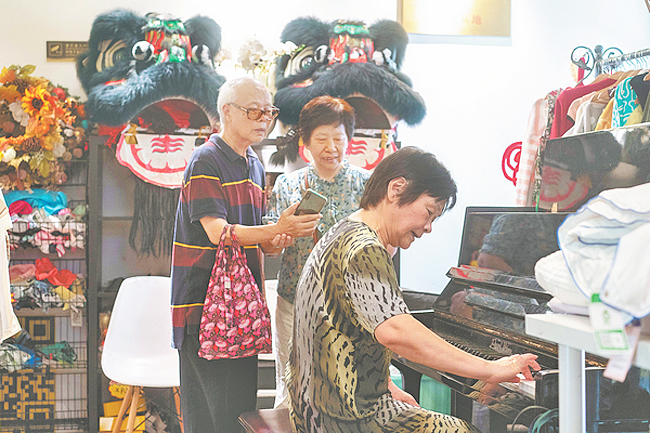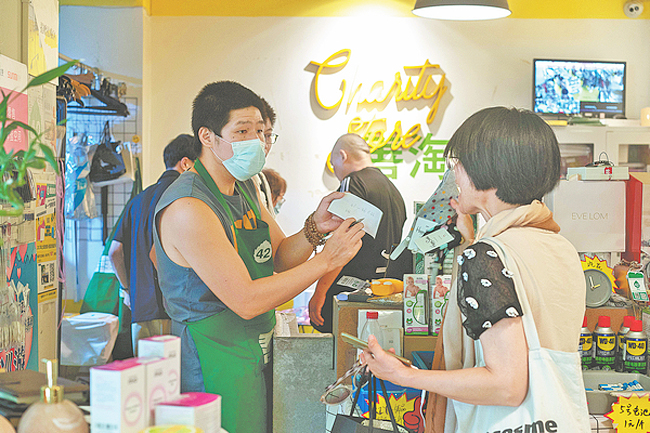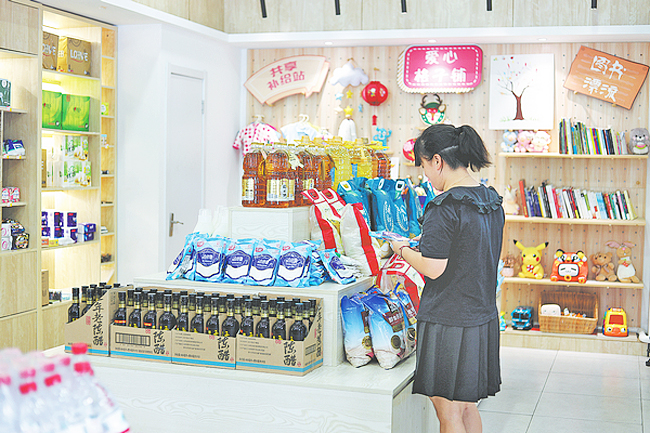ANN/CHINA DAILY – Examining the thriving charity store trend in a city where individuals are increasingly motivated to make a positive impact, Yu Ran provides insights.
Over the last 20 years, Shanghai has experienced remarkable growth and transformation in its philanthropic landscape, underscored by the proliferation of charity shops throughout the urban landscape.
Charity stores are a relatively new concept in China. Shanghai’s first charity store, the Zhenning Road Charity Store in Jing’an district, was opened only 20 years ago.
However, over the past decade, an impressive 173 new charity stores have been established within the city. Consequently, there is now a grand total of 232 stores in operation.
Over the years, Shanghai has been refining its regulatory and policy measures, and issuing documents, such as the selection and recommendation regulations for the city’s charity awards, and the management measures for special funds for Shanghai foundations to provide support for the charity sector.
Local authorities have also said that they will continue to enhance regulatory policies in the field of charity and provide high-quality development support for Shanghai’s charities.
Charity stores fall under two operational models. The first involves individuals from the neighbourhood’s administrative system working as store staff, who are managed by a neighbourhood non-governmental organisation. The second involves using social organisations to manage and operate the stores.



The eight charity stores in the Pudong New Area that are run by the Shanghai Shanxing Public Welfare Service Center are an example of the first operational model.
“The model of a charity store is different from that of traditional retail stores. Our goal is to transform the atmosphere of the store into a place where everyone can come in. We want to use a retail approach with a focus on service to let more residents know that our products have more advantages and are of better quality,” said Du Lei, who works at the Shanxing Public Welfare Service Centre in Shanghai.
Not all stores managed by the centre are run the same way. The Lujiazui Street Charity Store primarily focuses on retail and charitable activities, including setting up street stalls every month to sell affordable fruits and vegetables, and providing home delivery services for the elderly.
These efforts are aimed at making more residents in the vicinity aware of the operational model of the charity supermarket and to highlight the convenience it affords.
On the other hand, a charity store on Weifang West Road mainly provides discounted goods to underprivileged and elderly groups.
“We will adjust the product categories based on the varying needs of the surrounding community residents and collaborate with a variety of partners. Our primary focus will be on the community, and we will differentiate ourselves through the services,” said Du.
A TRENDIER KIND
Generally, stores run under the first model are more low-key in nature.
Those managed using the second are deemed to be more popular with the general public.
“We are pleased to see that social organisations and other social forces have independently established charity stores which offer a wider range of goods, serve a more diverse range of beneficiaries and have a broader market appeal, compared to traditional charity stores,” said director of the Shanghai Civil Affairs Bureau Zhu Qinhao.
Among the most popular of the stores run by social organisations is the Buy42 Charity Store on Jiangning Road in Jing’an district.
Featuring a design that is reminiscent of a grocery shop, the store has been a major hit with young consumers, many of whom flock to the place to take photos that they can post on social media.
Filled with a wide range of goods, including colourful and fashionable socks, kitchenware, clothing and even vintage books, the shop is just one of the 42 that social enterprise Buy42 operates in Shanghai.
“We hope to use the down-to-earth vibe of a grocery store to promote charity stores and help them flourish within communities,” said chief executive officer of the social enterprise Jiang Shujie.
“Our intention is to bring the concept of charity stores, which are commonly found abroad, to China so that we can promote eco-friendly consumption and help people understand that our lives can be just as fulfilling without the excessive consumption of resources.”
Last year, the organisation received 259,469 items worth around CNY6.8 million (USD932,766) – an 8.18-per-cent increase in donated value compared to the previous year – from 84 companies.
Notably, there was a 54.44-per-cent increase in the value of donated personal goods that were unused, a sign that the public is getting increasingly involved in the business of doing good for others.
SOCIAL RESONANCE
Ye Yu is among the many who have come forward to donate.
In 2020, the 46-year-old donated an unworn Chinese-style top to the store.
After seeing someone purchase the item, Ye said she felt a sense of fulfillment that has since made her a regular donor and buyer at the store.
“My first impression was that the store is unlike other retail shops. Here, the products, employees and volunteers have stories behind them,” said Ye.
“I used to understand charity as being kind and compassionate to others. But Buy42 has helped me realise that charity can empower every individual, every action and every item to make a positive influence on others,” she added.
According to Jiang, many locals used to view charity stores as nothing more than just secondhand goods outlets.
Those who frequent the stores run by the social enterprise, however, will know that this is not the case.
Besides paying for operational costs, the money raised from selling the donated goods is also used to hire staff from disadvantaged groups and organise charity events.
For example, the manager of the Jiangning Road store has a hearing impairment while the manager of the Gonghe New Road store is an individual with special needs.
The events that the social enterprise regularly organises include activities that allow children to learn about the importance of environmental sustainability, as well as initiatives aimed at helping individuals with disabilities learn new skills and become integrated into society.
It also assists charitable organisations in selling donated items that the latter have no use for. For instance, the cutlery they sell in their store was a donation received by a school for impoverished children.
For items that are particularly challenging to sell, Jiang’s team organises art workshops where people can get creative and turn ordinary items into works of art.
“I hope that our enterprise can become a century-old charity store in China and touch the hearts of many more people with its philanthropic mission,” Jiang said. – Yu Ran



















































